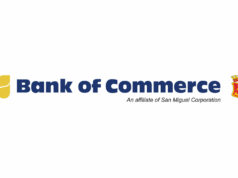In just a little over 60 years, Malaysia has successfully transformed itself from a low-income agricultural based economy to a nation on track towards attaining advanced economy status in two years’ time. Amongst its commendable achievements in national development, Malaysia lays claim to a remarkable decline in poverty rates amongst the peopleandremains an example of poverty reduction in Southeast Asia.
Recognizing poverty to be a multi-faceted issue, the Government implemented a series of wholistic policies and initiatives over the years, focusing on inclusiveness to enable equitable opportunities for all Malaysians. Results and data have shown these programs have achieved the desired results. The Central Intelligence Agency (CIA) World Factbook 2017 has reported that Malaysia’s poverty rate is the lowest among South-East Asian countries. It was just 3.8% compared to Vietnam and Indonesia (11.3%), Thailand (12.6%), Laos (22%), the Philippines (25.2%) and Myanmar (32.7%).
The report highlighted that Malaysia’s per capita gross domestic product was US$27,200, which was far better than those of its regional peers as Thailand (US$16,800), Indonesia (US$11,700), the Philippines (US$7,700), Vietnam (US$6,400), Myanmar (US$6,000) and Laos (US$5,700).
According to one of the most recent reports by the World Bank, Malaysia has had an inclusive economic growth rate of about 7 percent annually for the past 25 years. Since this growth has been inclusive, Malaysia has been successful at nearly eradicating poverty in the country.
Nonetheless, with the rise of new forms of poverty particularly in urban areas brought about by mass and rapid urban migration, there is still more to be done for Malaysia to attain its zero-poverty target. Hence, together with various stakeholders, the Government continues to build on its national policies and plans, implementing numerous initiatives to help raise the incomes of the urban poor and vulnerable groups. These can be divided into two main categories: short-term and long-term.
Short-term initiatives
Aiming to address the immediate needs of the urban poor, the Government has availed numerous aids and subsidies programmes in the country. These include:
Bantuan Rakyat 1Malaysia (BR1M)
Introduced in 2012, BR1M is part of the Economic Transformation Program (ETP) to assist low-income earners in Malaysia. The aid (a yearly, one-off cash payment of RM500) aims to reduce the cost of living amongst households with less than RM3,000 monthly income.
Various financial Aids
Eligible single mothers, the disabled, senior citizens in need as well as low-income households are also provided with a number of financial aids to help ease their burden. These aids come under the purview of the Ministry of Women, Family and Community Development and Department of Social Welfare Malaysia.
Long-term initiatives
Long-term programmes are also in place to equip the underprivileged with the necessary knowledge, skills and/or capital to become more financially independent in the long run.
1Malaysia Programme
A nationwide ongoing programme with multiple initiatives to help ease the burden of the poor. Initiatives include Kedai Rakyat 1 Malaysia, PR1MA affordable housing scheme, KAR1SMA social assistance programme and Program Susu 1 Malaysia for school-going children.
2 Years Exit Programme (2YEP)
Introduced in 2010, 2YEP provides temporary welfare assistance to eligible candidates over two years whilst helping them to build on their abilities. After 2 years, the candidate is expected to be able to live independently without relying on subsidies. To date, 2YEP has helped 122 hardcore poor people, including those with disabilities to come out of poverty.
Transformative Education Policy
The Government has long been committed to provide free education for all Malaysians, free textbooks in public schools, continuously transform the education system and provide scholarships to further boost the social and economic standing of all races. Malaysia is unique in the sense that it provides a vernacular education system (Chinese and Tamil) to cater to the specific needs various communities in the country.
Eradicating poverty is a challenging and continuous process with no quick fixes. Nonetheless, these holistic programmes will serve to lift those concerned out of poverty, and in time, enable them to achieve their fullest potential as an active participant in Malaysia’s advanced economy.



